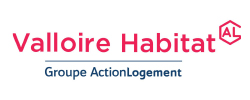Our Members in France





Social Housing in France
What is social housing in France?
Social housing provision in France is housing provided by ‘HLM’ organisations. HLM organisations are specific actors entrusted by the state to fulfil a mission of general interest. HLM stands for Habitation à Loyer Modéré: organisations providing housing at moderated rents.
It is a specific sector of the housing market which is governed by legislative and regulatory provisions. These are separate from common law and regulated by the Construction and Housing Code (Code de la Construction et de l’Habitation, CCH). The provision of social housing includes construction, development, allocation, and management of rented social housing as well as of dwellings for social home ownership. (Credit: The Housing Europe Review)
Who provides social housing?
French social housing is built and managed by HLM organisations as well as to a lesser extent by semi-public enterprises (Société d’économie mixte, SEM) and some non-profit associations. Providing the biggest part of the social housing stock, HLM organisations include both publicly and privately owned companies acting on a non-profit basis and under the control of the Ministry of Housing and Finance. (Credit: The Housing Europe Review)
How is it financed?
Rents are based on the net construction cost. The cost is lowered by subsidies from the State and local authorities and tax incentives. Housing benefits are also available to help the poorest households pay the rent. On the other hand, if a household’s income increases to the point that it exceeds the income ceiling, rents rise accordingly.
Most of the funding for new construction comes from finance loans, where the main lender is the Caisse des Dépôts et Consignations (CDC). The CDC provides funds from the ‘Livret A’ accounts. This is a savings fund with a regulated interest rate and it is not subject to tax. Every French household has the right to open a tax free ‘Livret A’ Savings Account at their local bank. Their savings are pooled by the CDC, which pays a fee to the banks for collecting the funds and a defined interest rate.
Other sources of financing include employers’ grants and discounted loans (the so called ‘1% Logement’, which was designed to promote housing for employees), and guarantees from local authorities or the HLM guarantee fund (CGLLS). (Credit: The Housing Europe Review)
Who can access social housing?
Access to social housing is limited by income ceilings. The ceilings are set at the national level by specific regulation and vary according to the area where the dwelling is located as well as the number of household’s components. Income ceilings are set at a level that includes a large proportion of the population to be accommodated in social housing allowing for a certain degree of socio-economic mix.
Nevertheless, over the past three decades, the sector has seen a constant increase in the proportion of poor households. Furthermore, the Law on the Right to Housing, commonly referred to as DALO, was introduced in 2007. The DALO establishes priority access for bona fide applicants in the following 6 categories: homeless people; people at risk of eviction who don’t have the possibility of finding another accommodation; people with temporary accommodation; persons in unhealthy or unfit accommodation; households with children in overcrowded or indecent dwellings; disabled people. The law allows for people to seek for legal redress vis-a-vis the local authority in case their request for an accommodation is not answered. (Credit: The Housing Europe Review)
Discover our members in other countries
Eurhonet has members in different European countries. Have a look at the public and social housing providers that make up our network:

